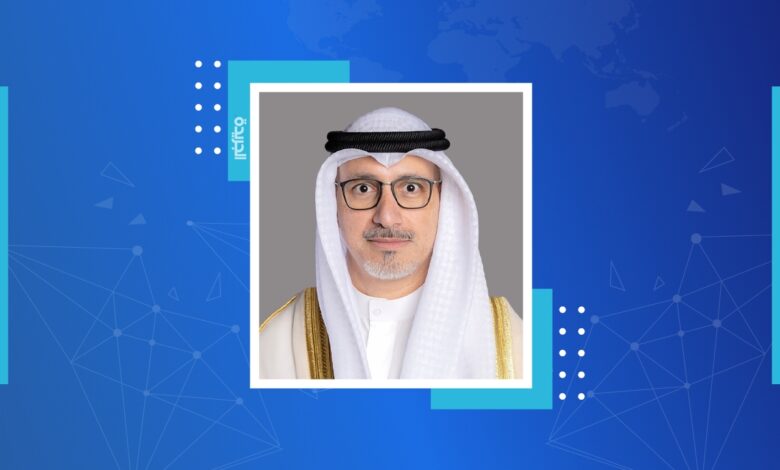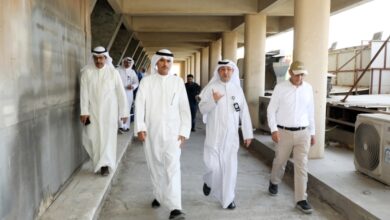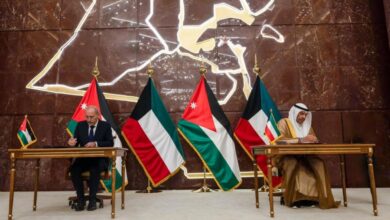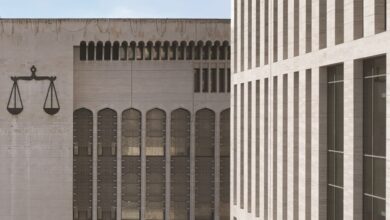Kuwait revamps construction subsidies to empower citizens
Khalifa Al-Ajeel, Minister of Commerce and Industry, issued a decree aimed at ensuring more efficient use of public funds, granting citizens the freedom to choose materials based on their construction needs, and fostering competition among qualified suppliers.

• The subsidy amount for building materials has increased from 5,000 to 6,000 Kuwaiti dinars, while ready-mixed concrete support has risen from 8,500 to 9,000 dinars.
Khalifa Al-Ajeel, Minister of Commerce and Industry, issued Ministerial Decree No. 222 of 2024, outlining new rules for the disbursement of subsidized building materials for construction, the Al Jarida newspaper reported.
The decree aims to redirect subsidies to better benefit citizens and ensure more efficient use of public funds, giving citizens the freedom to choose materials based on their construction needs.
The new mechanism allows suppliers meeting the required conditions to participate in the supply system, ensuring fairness and promoting competition among local suppliers.
This reform marks the first comprehensive reorganization of construction support since 2012, with flexible, variable pricing for materials and the introduction of eight new products.
Unlike the previous fixed support and price system, the new approach links support to market prices, providing citizens with greater flexibility. The subsidy amount for building materials has increased from 5,000 to 6,000 Kuwaiti dinars, while ready-mixed concrete support has risen from 8,500 to 9,000 dinars.
For the first time, aluminum windows are included in the subsidized materials list, with support up to 1,000 dinars. The new decree by the ministry also introduces an option for beneficiaries to choose from four additional products—health kits, water insulation, wires, and sigma—valued at 1,000 dinars. This gives citizens the flexibility to select materials based on their specific needs.
The decision will take effect in one month and includes provisions allowing the Undersecretary of the Ministry of Commerce and Industry to amend allocations and redistribute subsidies based on local market prices or public interest. The goal of this reorganization is to standardize construction material support, ensuring fairer distribution and fostering competition among suppliers to benefit citizens.
The ministry emphasized that the reorganization of construction material subsidies aims to unify the support mechanism, as the current system varies—some materials are subsidized with fixed lump sums, while others are supported with variable amounts based on supplier prices. Additionally, the inclusion of provisions from Ministerial Decree 2023/69 on reduced-price construction materials necessitated its incorporation into the new decision.
The ministry explained that, previously, support for construction materials across various categories was regulated by multiple ministerial decisions, lacking a unified framework.
Benefiting citizens
The new decision remedies this by consolidating supportunder a single regulation that applies to all categories. It further highlighted that fixing the sale price of certain construction materials under the previous system hindered competition among suppliers, limiting their ability to lower prices to attract beneficiaries. The new mechanism, however, encourages competition, ultimately benefiting citizens.
The ministry clarified that “building materials” refer to items used in construction, restoration, and internal or external finishes that receive financial support from the government or are listed at reduced prices under the new decision. “Optional materials,” meanwhile, are those the beneficiary can choose—one or two items—within the allocated subsidy amount.
The term “beneficiary” was defined as an individual who has secured a loan from the Kuwait Credit Bank for purposes such as construction, restoration, housing purchase, or demolition and reconstruction, among other specified categories.
Better prices and higher-quality materials
The ministry stated that the updated decision would enable citizens to access better prices and higher-quality materials, strengthening the country’s construction sector. This reform is expected to positively impact housing and development projects. The ministry also reaffirmed its commitment to prioritizing national products, ensuring fair practices, and preventing monopolies. The new framework allows for the inclusion of imported products if prices rise excessively or if there are suspicions of manipulation.
Finally, the ministry noted that the new decision resolves ambiguities regarding the definition of national products and the subsidized materials concerned, adding specific definitions to ensure clarity and address past inconsistencies.













